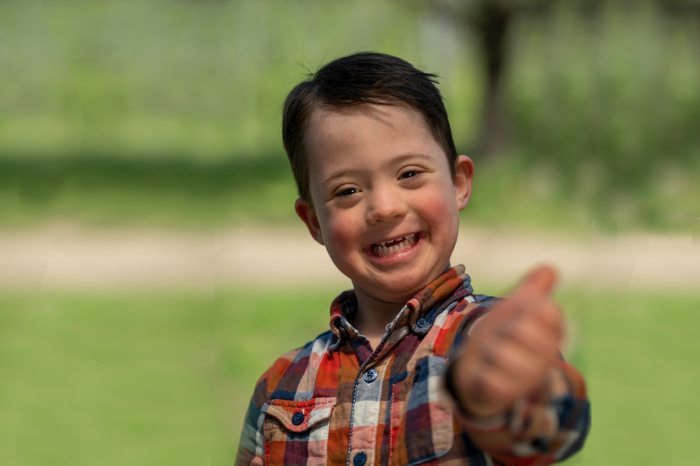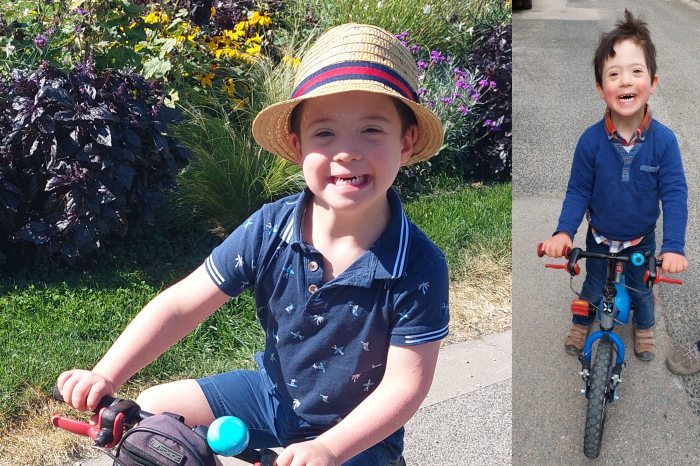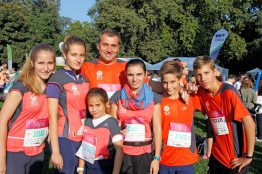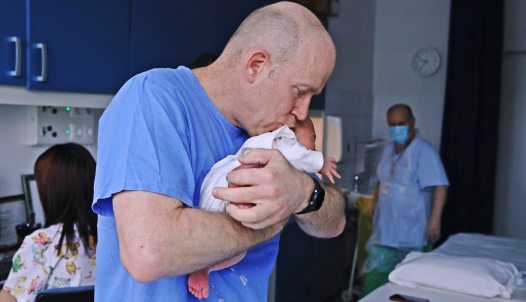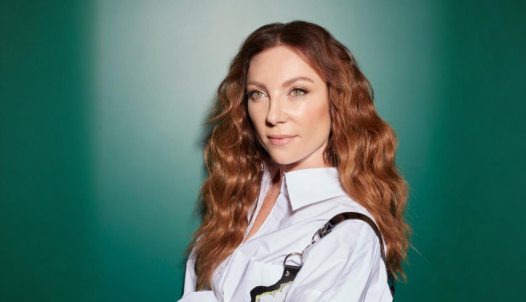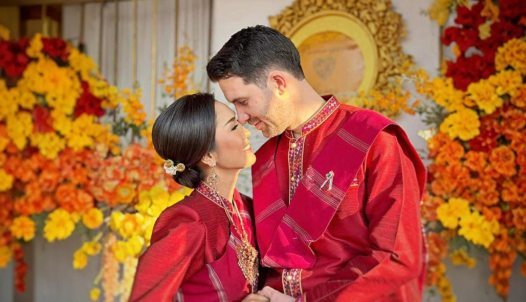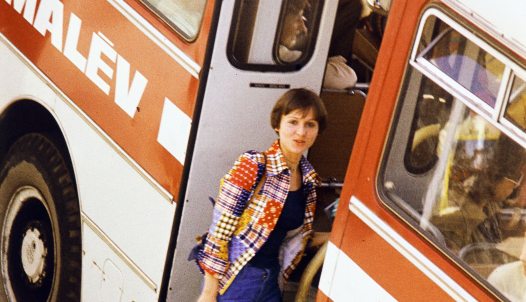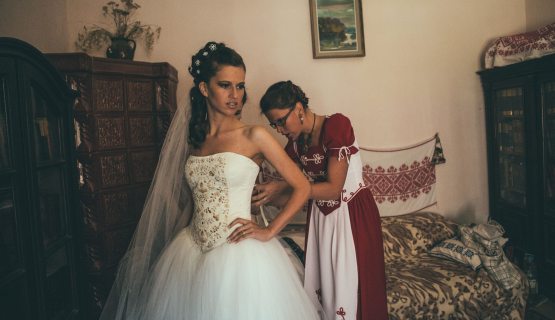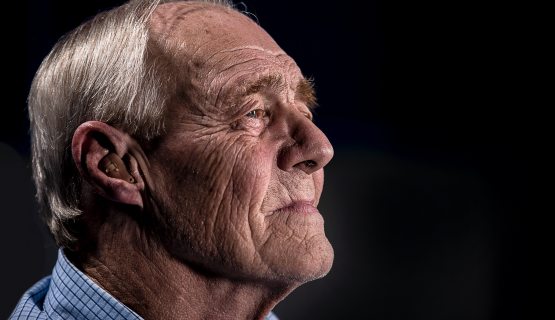”I love my son as much as I love the other three” – an interview with Judit Folly whose third child was born with Down’s-syndrome
A couple of years ago, during a campaign for the Folly Arboretum Judit Folly's sister told us her sister's story. Judit's third child, Miklós, was discovered to have Down's syndrome after his birth. The article was about the birth of Miklós and the initial shock. How has their life changed since then?
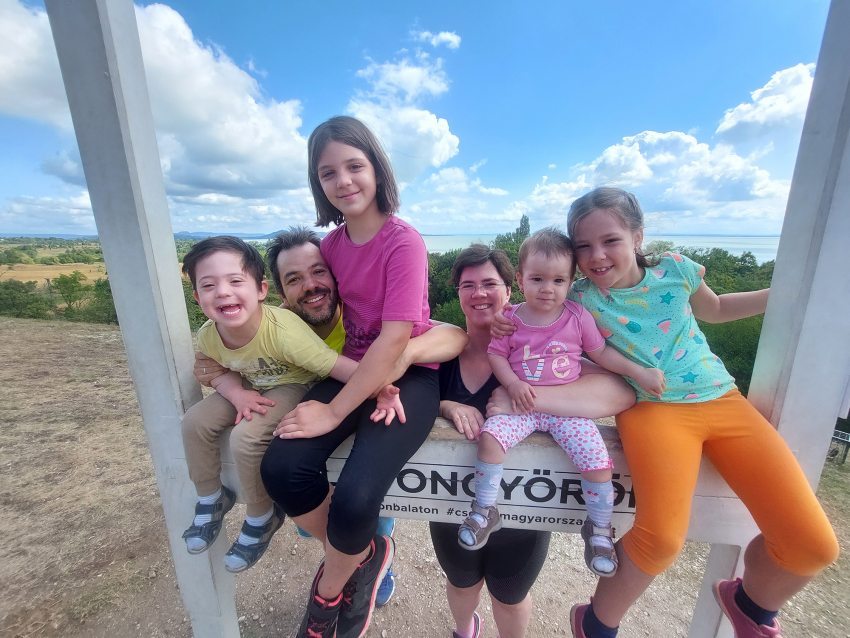
We have a pretty busy life, but what should it be like with four children! Miklós is already in kindergarten. The nearest kindergarten in the district has accepted him, so he is in the same group with mainstream children, which has a very positive effect on him, trying to absorb the knowledge of the other children. In the last few months, he has learned to ride a bike very well, Grandpa has been practicing with him consistently every day.
How was he received at the kindergarten?
We did a bit of preparation, went and introduced ourselves to the parents. They welcomed us warmly, we didn't feel that anyone was against Miklós going there. The kindergarten teachers were also very good at preparing the children for his arrival. They explained to them that Miklós is developing differently and doesn't speak very much yet, although he makes himself understood very well through metacommunication. We think he is in the right place.
Are you for integration?
We looked at several institutions before deciding on this one. I was worried that in a place with a wide range of children with disabilities, Miklós would not be comfortable, it would be too much for him: not everyone would tolerate his slowness and this could lead to conflict, or he would not be able to manage other people's behavioral problems. We were looking for a place where he would be accepted and happy.
When he was born, I thought I would integrate him by any means. Today I see things differently, and the most important thing is that he would have a good time, that the world would be round for him.
In fact, it already is, he's a quite well-balanced little boy. We are now leaning towards him going to a school where there are other children with Down's syndrome, where he can make true friends. Because let's face it, the chances of him having a mainstream friend at the age of 10 or 12 and having an equal relationship are pretty slim. But we still have time to decide that. Before I had planned everything, but with Miklós I was forced to become more flexible. I had to accept that I can't control everything, that I have to be happy with what there is today, what works today, and not worry about what he doesn't know yet, or what will happen later. I no longer try to forcefully close the gap between Miklós and the mainstream kids.
After Miklós, you decided to have a fourth child. Were you afraid during the pregnancy?
When I held the newborn Miklós in my arms, someone said to me: "Have a fourth child". "Actually yes, let's have another child," my husband Bálint and I said to each other, and then put the question aside. A new child is not a solution to the difficulties with Miklós, he still will be here and we will have to bring him up. But we agreed that if we felt the desire for a fourth child, we would be open to it. Admittedly, this desire came later than it had come in the cases of the second or third child, there were so many difficulties and tasks, but eventually, it came and we did not think much about it. We didn't screen for Down's syndrome specifically in the same way as we did with the others. When the doctor at the 12-week ultrasound said everything was fine, I went home happily.
I don't think it's important to have all sorts of examinations and tests during pregnancy, because we are not the masters of life and death.
Their reliability is questionable, too, as I know of several families who, despite having had a separate screening test for Down's, did not find out that the baby had Down’s Syndrome until after the birth. It is very good for Miklós to have a younger sister, he enjoys being better at certain things, and there is someone who he holds the hand of and helps. For the time being, he is still in the lead over Inez, who is one and a half, and that gives him a lot.
In the meantime, you have completed the Down Nanny training and volunteered at the Down Foundation's Fellow Support Service (“Sorstárs Segítő Szolgálat”). Why do you think it is important to help people in similar situations?
After the birth of Miklós, I received a lot of consolation and every comfort made me feel good, but the greatest help was when a fellow mother, someone in similar situation looked me in the eye and said, "Believe me, everything will be fine". Regardless, I freaked out and went through the whole grieving process, but I was able to cling to that sentence. Why would she say that if it wasn't true, why would she lie to me when she had been through the same thing? It was also a great help when we ran into parents in hotels or playgrounds who were carrying a child with Down's Syndrome in their arms. I could see that their lives were not turned upside down, they were going on holiday, relaxing and smiling in the same way. These encounters made me believe that we could do it too, that we wouldn't necessarily be unhappy because we have a child with Down's syndrome. My own example can help others in similar shoes, because it's not as if I, unlike others, have taken the obstacles lightly. I have struggled with my own demons, fears and defeatism, too.
Now we live a happy life with a Down's syndrome child whom I wouldn't trade for anyone else, who I love as much as my other three children! I have a degree in foreign trade, and in economics, I speak several foreign languages, but I consider my greatest knowledge to be what I have learned and experienced over the years with my family.
What were your geatest fears?
I feared more than anything that I would not be able to communicate with Miklós. I was also afraid that we'd become a family that lived on hold. The girls might suffer from having a brother with a disability. We'll go under because of this whole situation, we won't be happy anymore, everything will be hard and bad for us, we won't travel anywhere anymore, our friends will desert us and only parents of children with disabilities will be friends with us. None of that happened in the end. Today I am worried about something completely different than before, different difficulties have come into our lives. Things that can happen to anyone.
Do you see yourself in the mothers you go to help as a fellow-mother?
I'm still very much at the beginning of my journey, I completed my Down Nanny training in the summer, I've only been a support worker for one family so far. Their story is different, we have many differences, maybe it was easier for me to accept the whole situation, but the mother's fears and worries were the same as mine. Most people don't have any kind of relationship with a person with Down's syndrome, so everyone concerned immediately starts to browse the internet, where we find the same sites. We read about when the gap between the disabled and the mainstream will begin to open, when they will start to fall behind, what difficulties they will have - and we will have the same concerns, the same questions. We also read the success stories, that there are people with Down syndrome, for example, who have graduated from college, who have become mayor, who are photo-modelling, or who are becoming actors, and we try to hold on to those. And then as time goes on, you grow to love and accept your own child, and it's no longer about how to make them as similar as possible to others. In a few years, almost all of your concerns will be disproved, even the health concerns, because they can treat and cure almost everything now. It was like that with Miklós, too.
Your husband, Bálint, also took part in the training. As a married couple, what has all this given you?
I thought I was going to go to the two-day training on my own and I could devote myself to it completely. Then I found out that it was actually a family program, and it scared me what it would be like, but in the end it was good for the whole family. Miklós met up with several of his old friends, and the girls made friends who have similar lives. It was also very rewarding for us as a couple to be able to re-tell our feelings, experiences and memories in front of each other, and that strengthened us, too.
Why do you think you have been given Miklós - and this life long task from God?
When we were expecting our first child, I told my husband that we didn't need to screen for Down's syndrome, God wouldn't give me a mentally challenged child anyway, because I wouldn't be able to raise him. I thought I could do a lot of things, but not that.
We had our two older daughters two years apart, we had no difficulties with them, they were even very rarely sick. When we moved from a rented apartment to a nice one with a garden, my husband and I remarked that we couldn't have everything go so easily in our lives, now we had to have some difficulties. When we were expecting Miklós, I asked God to give me some cool task to do, something that was just for me. After all this, we had a child with Down syndrome, I think it's obvious why.
